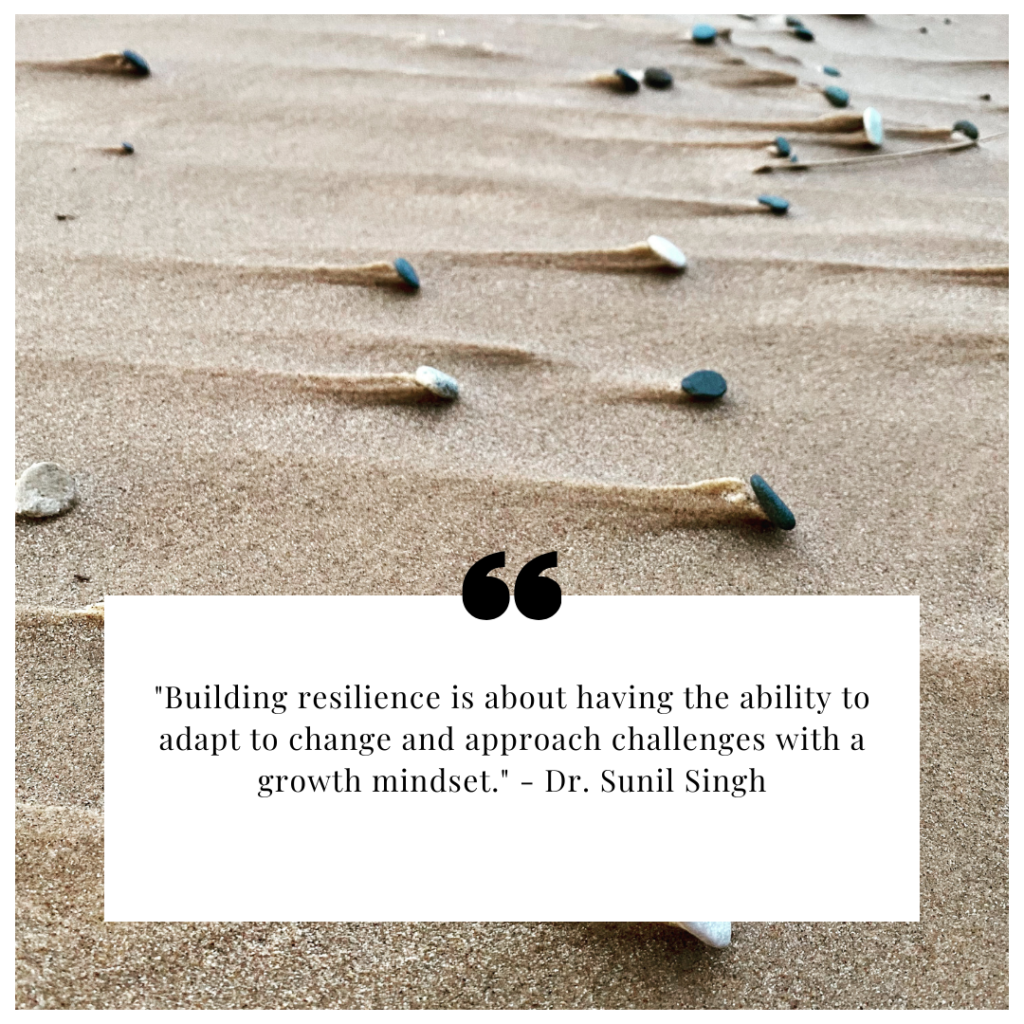Artificial intelligence (AI) is transforming the workplace at breakneck speed. Jobs are being redefined, new roles are emerging, and certain skills are becoming obsolete. To stay ahead in this dynamic landscape, it’s time to future-proof your career. This comprehensive guide lays out how AI is changing work and empowers you to adapt and thrive amidst the transformation.
Shifting Skills: Understanding the Impact

Organizations like the World Economic Forum (WEF), Harvard Business Review (HBR), Boston Consulting Group (BCG), and McKinsey & Company offer key insights:
- Reskilling Imperative: The WEF predicts 60% of workers will need additional training by 2027, primarily in technology and analytical thinking.
- Tech and Soft Skills Convergence: BCG stresses the increasing need for both technical and soft skills, especially in AI-related fields. Healthcare, where human skills are irreplaceable, also sees this converging demand.
- Skill Mismatches and Labor Shortages: BCG predicts significant workforce deficits in key sectors like education and healthcare by 2030 due to skill gaps.
Redesigning Work for the AI Era
Stanford’s Human-Centered AI Institute emphasizes work redesign – restructuring workplaces and focusing on what defines a “job” to align with AI’s capabilities. Fields where empathy is essential, like care work, are less likely to face full automation. Safe, supportive workplaces for human-AI interaction are vital.
The WEF and McKinsey are more optimistic, predicting AI-driven job creation and overall improved working conditions. Regardless, governments and businesses must play a crucial role in supporting workers who may be displaced by automation.
The Need for a “Reskilling Revolution”
This looming reality highlights the urgent need for comprehensive skilling strategies led by policymakers, educators, and companies. With technology poised to radically change over a billion jobs in the next decade, we can’t afford inaction.
Categories of Roles Being Impacted
The advent of AI and technological advancements has led to significant changes in the workforce, with certain roles becoming more susceptible to automation and layoffs. Here are some of the categories and specific roles that have been notably impacted:
- Technology and Software Development: While technology roles are in high demand, certain positions, particularly those involved in routine coding or software maintenance, are being automated through advanced AI algorithms and tools.
- Customer Service and Support: AI-powered chatbots and automated customer service platforms are increasingly taking over roles traditionally held by human customer service representatives, especially in initial customer interactions.
- Manufacturing and Assembly Jobs: Automation and robotics have significantly impacted manufacturing roles, particularly those involving assembly line tasks that machines can efficiently perform.
- Administrative and Clerical Roles: Data entry, scheduling, and other administrative tasks are increasingly automated through software solutions, impacting administrative assistants, receptionists, and clerical workers.
- Retail and Sales: With the rise of e-commerce and automated inventory management systems, traditional retail positions, including cashiers and stock clerks, are seeing a shift. Sales roles, especially those not requiring specialized product knowledge, are also being affected by online sales platforms and AI-driven sales tools.
Emerging Roles
Conversely, the same technological advancements are creating new opportunities in various sectors, requiring new skills and competencies. Here are emerging roles that are gaining prominence:
- AI and Machine Learning Specialists: As AI continues to evolve, there’s a growing need for professionals who can develop, implement, and manage AI algorithms and machine learning models.
- Cybersecurity Experts: With increased digitalization, the demand for cybersecurity professionals to protect against data breaches and cyberattacks is on the rise.
- Data Analysts and Scientists: The ability to analyze and interpret large datasets to inform business decisions is increasingly valuable, leading to higher demand for data analysts and scientists.
- Renewable Energy Technicians and Engineers: The shift towards sustainable energy sources is creating jobs in the design, installation, and maintenance of renewable energy systems, such as solar panels and wind turbines.
- Digital Marketing and Content Creation: The digital landscape requires professionals skilled in digital marketing strategies, content creation, and social media management to engage online audiences effectively.
- Healthcare and Biotech Innovations: Roles focusing on healthcare technology, biotechnology research, and telemedicine are expanding, driven by advancements in medical technology and the growing emphasis on personalized medicine.
- Educational Technology and Online Learning: With the expansion of online education, there’s a demand for instructional designers, online educators, and technologists who can create and manage digital learning environments.
This transformation in the job market underscores the importance of adaptability, continuous learning, and skill development. Workers must stay informed about industry trends and be proactive in acquiring the skills necessary for these emerging roles, ensuring their relevance in the evolving workforce.
The Net-Zero Transition: Dislocation and Opportunity
While AI brings sweeping changes, the shift to a sustainable economy provides another force influencing jobs. Many will be lost in fossil fuel industries, but the renewable energy sector is set to boom. Targeted upskilling is essential to bridge the gap and help impacted workers secure these new jobs.
Global Layoffs: Impact of Economic Pressures and AI Integration
In the last six months, particularly within tech, economic conditions and rapid shifts in technology have significantly altered the global job market. The trend of companies announcing and enacting large-scale job cuts continues – these reflect both broader challenges and the streamlining of operations as businesses integrate AI to improve efficiency.
The last six months have seen a significant number of job losses worldwide, particularly in the tech sector. In 2023 alone, more than 191,000 workers in U.S.-based tech companies were laid off, with companies such as Amazon, Alphabet, Microsoft, and Meta leading the workforce reductions. The trend has continued into 2024, with at least 20,526 workers in U.S.-based tech companies losing their jobs so far. This data reflects the broader impact of economic headwinds and the rapid pace of technological change on employment.
In the last six months, the global job market has experienced significant shifts due to layoffs across various industries, with the tech sector facing the brunt of these changes. Companies have announced substantial job cuts as they adapt to economic challenges and integrate AI into their operations. Below is a summary of notable layoffs from various countries and industries, reflecting the broad impact of these developments.
Summary of Notable Global Layoffs (Past 6 Months)

This table highlights the scale and diversity of layoffs, affecting not only tech but also consumer services, media, telecommunications, and energy sectors
AI’s Influence is Undeniable. Will You Shape its Trajectory?
While AI revolutionizes workplaces, fear and resignation are not the answer. By prioritizing adaptability, embracing learning, and forging strong community connections, workers can build rewarding careers, ensuring they don’t just survive but thrive in this transformative era. The future of work will be made by those actively crafting it.
Blueprint for Employee Resilience

In response to these challenges, employees can adopt a robust strategy to maintain resilience and employability:
In light of the dynamic shifts in the job market due to technological advancements, employees can fortify their resilience and employability by embracing a multifaceted strategy. This enhanced approach involves deepening one’s adaptability, skill set, and professional network to navigate the changing landscape successfully. Here’s an expanded blueprint to guide employees:
Enhanced Continuous Learning and Upskilling
- Specialized Skill Acquisition: Beyond general courses, focus on acquiring specialized skills that align with future job trends, such as quantum computing, blockchain technology, and advanced analytics. Platforms like Coursera, edX, and Udacity offer specialized courses designed in collaboration with industry leaders.
- Micro-Credentials and Certifications: Obtain micro-credentials and certifications that are recognized within your industry. These can provide a competitive edge and validate your expertise in specific areas.
Deepened Flexibility and Adaptability
- Cross-functional Skill Development: Develop transferable skills across different roles and industries, such as project management, critical thinking, and creative problem-solving. This broadens your career prospects and makes you adaptable to various job environments.
- Embrace a Growth Mindset: Cultivate a growth mindset that views challenges as growth opportunities. Step out of your comfort zone and take calculated risks to advance your career.
Strengthened Networking and Community Engagement
- Active Professional Community Participation: Actively participate in online and offline professional communities. Attend workshops, conferences, and webinars to stay abreast of industry developments and build relationships with peers.
- Mentorship and Peer Learning: Engage in mentorship, either as a mentor or mentee, and participate in peer learning groups. These relationships can offer invaluable guidance, feedback, and support.
Elevated Personal Branding
- Showcasing Expertise: Regularly contribute to professional forums, write articles, or speak at industry events to showcase your expertise. This can increase your visibility and position you as a thought leader in your field.
- Leveraging Social Media Strategically: Use social media platforms strategically to share your achievements, projects, and insights. Engaging with industry influencers and participating in relevant conversations can enhance your professional reputation.
Proactive Seeking of Guidance
- Career Coaching: Invest in career coaching services to gain personalized strategies for career development and overcoming obstacles. A career coach can offer tailored advice to navigate your career path effectively.
- Skills Gap Analysis: Conduct a regular skills gap analysis with the help of career counsellors or through self-assessment tools. Identifying and addressing gaps in your skillset can keep you competitive and relevant in the job market.
By adopting this comprehensive strategy, employees can better position themselves to thrive in a job market that AI and technological innovation are increasingly shaping. This proactive stance enhances employability and empowers individuals to drive their career trajectories amidst the ever-evolving workplace landscape.













